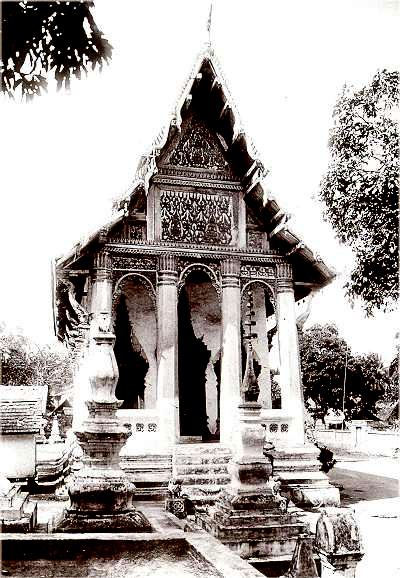|
| Main Contents | Luang Prabang and Its Art | Furniture and Statuary | Beliefs and Religions | Population and Habitat |
Vat (temple) Pa Khe or "Pagoda of the Dutch" (Fomberteaux E.F.E.O. 1930) |
still |
| The
Vat Pa Khe, the ‘Monastery of the Forest of Khe trees' (Sesbania grandiflora -
leguminosae), was built in 1853 by King Chantharat. The viharn, walls, door frames, roof
shape and fa~ade are all in the Vientiane style. The murals on the internal walls,
the paintings on the leaves of the Southern door on the Eastern side showing persons in
XVIIth century Dutch costumes, as well as those on the leaves of the Western door
illustrating persons in XVIth century aristocratic Venetian costumes give this monastery
its quirky air. Laotian influence is evident in the wall murals depicting episodes of the Phalak Phalam (Laotian Ramayana), the inward incline of the pillars, the artists' sculpting style as much for the Buddhas as for the door leaves. The Chinese influence commemorating the dispatch of a Laotian delegation to Kenning to pay homage to Tong Zhi, the Emperor of China; to counter the increasing Siamese grasp, is very obvious in the ceramic patterns and in the vat's furniture. |
SEAsite Laos | Overview | History | Art & Culture | Language | Literature |
Gallery | Folklore | Other Topics | Links | SEAsite |
|
2003 SEAsite
Laos. Treasures of Luang Prabang |

 i
i